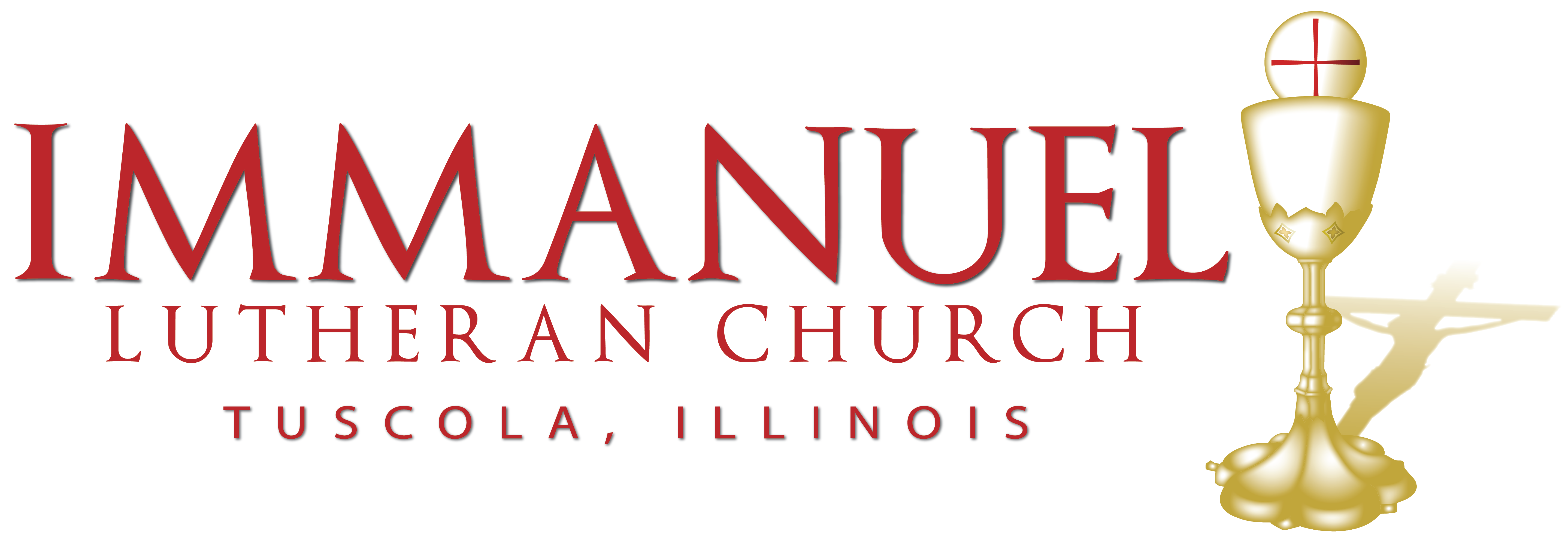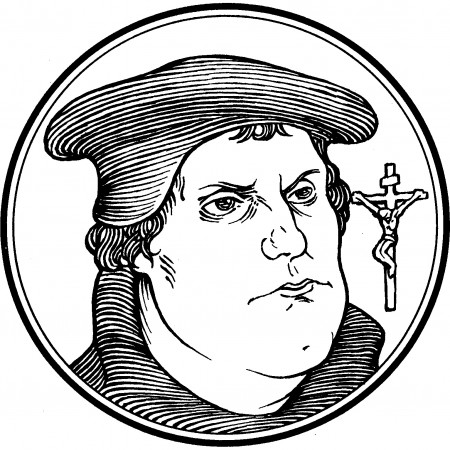The Commemoration of the Reformation
Epistle: Rev. 14:6-7
Gospel: John 8:31-36
“Wisdom is justified by her deeds” (Matt. 11:19), and the true Wisdom of God, Christ Jesus the incarnate Son, justifies us by His deeds. He prepares His way by the preaching of repentance, but He has suffered the violence of the Law and voluntarily handed Himself over to violent men, that we might eat and drink with Him in His Kingdom and “remain in the house forever” (John 8:35). For He is “a friend of tax collector and sinners” (Matt. 11:19), and He has rescued us by His grace from the slavery of sin and death. By the proclamation of His eternal Gospel “to those who dwell on earth, to every nation and tribe and language and people” (Rev. 14:6), “the righteousness of God has been manifested apart from the law” (Rom. 3:21), “that He might be just and the justifier of the one who has faith in Jesus” (Rom. 3:26). And by hearing the Gospel of Christ Jesus, “whom God put forward as a propitiation by His blood, to be received by faith” (Rom. 3:25), “you will know the truth, and the truth will set you free” (John 8:31-32).
+ IN NOMINE IESU +
The Reformation was no accident. God watches over his Church. She is the apple of his eye and always will be. The Church is the bride of Christ and Jesus, the Bridegroom, loves his bride.
Thus the Reformation is not about the heroic personality of Luther, nor is it about the political ramifications that came about from it. The Reformation is an episode in Church history guided by the God’s providence. He not only created the church, and called it into existence, he sustains it. From the first Christian Pentecost until the present the holy Christian Church has been established on this earth and no power has been able to destroy her. Why is it that the Church, once founded, cannot be overthrown? Why can we confidently assert that there has never been and there will never be a time when the Church of Jesus Christ will cease to exist? The answer is given in the vision of St. John the Evangelist recorded in our text for today:
“Then I saw another angel flying in the midst of heaven, having the everlasting gospel to preach to those who dwell on the earth; to every nation, tribe, tongue, and people.”
The everlasting gospel will keep the Church the Church. As long as the gospel is proclaimed the Church will be the Church. And the gospel will always be proclaimed.
It is the everlasting gospel. This might sound strange because the gospel is by its very nature a specific message about a specific person at a specific place and time. The gospel is not a message about Buddha or Muhammad or Gandhi or some other influential religious leader. It is about Jesus Christ, born of the Virgin Mary, who suffered under Pontius Pilate, was crucified, dead, and buried, and on the third day rose from the dead, and ascended into heaven.
There is no one size fits all generic gospel. The gospel is very specific. Years ago, theologians who wanted to make the gospel more “relevant” to people suggested that we broaden the meaning of the word “gospel” to mean good news for a bad situation. But the gospel is much more specific than that.
The gospel is specific in that it is the gospel of Christ and Christ alone. The good news on which the Church relies and from which she is born is Christ: who he is, what he has done, what he is doing for us. Only Jesus has destroyed sin and death and opened for us the door to everlasting life. The gospel is about Jesus or it is not good news at all.
The gospel is also very specific concerning what benefits it promises. It is not any good news for any bad situation. The gospel doesn’t promise a good job, worldly success, or good health. The gospel is not a how to method of making friends and influencing people.The gospel is the good news of God’s full and free forgiveness of sins for the sake of Christ’s most holy obedience and suffering. It tells us that our gracious God laid our sins on Jesus who took them away. It tells us that God is reconciled to us for Christ’s sake. It announces peace on earth and goodwill toward men. The gospel promises us that heaven is our home. The gospel tells us that we are free from the guilt of sin, free from the judgment of God’s law, free from fear of death and hell, free to be God’s children.
All of this is ours through faith in the gospel. Without the proclamation of the gospel we would not have what the gospel gives. Indeed, without the proclamation of the gospel there would be no holy Christian Church on this earth but we would all remain blind in sin, wandering through life not knowing where we were going, and ending up in hell. If the Church is the ark of salvation – and it is – it is on account of the everlasting gospel that is proclaimed to her, in her, and through her to the whole world: every nation, tribe, tongue, and people.
And this is what we celebrate and give thanks for this day. We give thanks that God has so ordered his church that the everlasting gospel was, is, and ever shall be the message that creates and sustains his church, that is, us.
So, “Fear God and give glory to Him.” For God’s glory is revealed in the one who lay in the manger, who changed water into wine at the wedding in Cana, who was scourged and beaten, and crucified at the hour when the Son was to be glorified. And it is He who is preached here, who is consumed here according to the everlasting gospel. So give thanks this day. The Reformation was no accident. For God is watching over his church, even now. Amen.



0 Comments